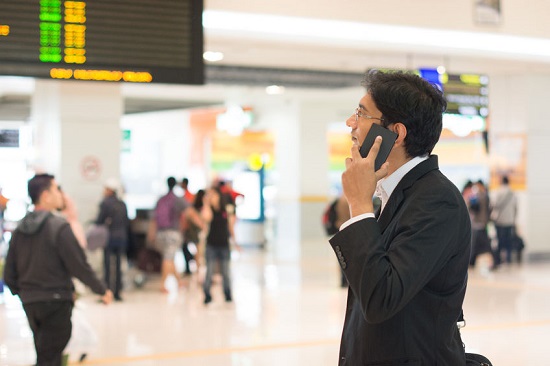Trip planning: How we will travel in the future
By Debasis Basu March 23, 2015
- A new era of travel, with more automation and intelligence in trip planning
- Powered by social, mobile, analytics and cloud technologies, and Code Halos
 TRAVEL planning has changed radically in the last decade, thanks to the web and social media.
TRAVEL planning has changed radically in the last decade, thanks to the web and social media.
If, for your last trip, you had to go through a lengthy and labour-intensive process to determine the travel timeframe, decide on where to go, figure out how much you can spend, and book the reservations either online or through a travel agent … you are not alone.
In an informal survey of 90 Cognizant employees in 2013, we found that it took one or two weeks for them just to plan a simple three-day trip.
A new era of travel is upon us and we can expect more automation and intelligence in our trip planning, powered by digital technologies such as social, mobile, analytics and cloud (SMAC).
Travel and hospitality companies can harness Code Halos – the swirl of digitally generated data that surrounds each of us as individual consumers – to transform their business models by offering an automated and customised trip planning experience, ushering in a new era for the travel industry in the not so distant future.
At the current pace of consumer digital activity and technology advancements, in the next few years, travellers can expect a much more personalised approach to how they plan vacations and trips.
By then, the capabilities will be in place for intelligent engines to automatically develop customised trip plans by aggregating disparate pieces of data that either travellers provide outright or are collected through their digital footprints.
The SMAC down

An optimised travel plan that an intelligent planning engine might suggest for a group travelling together may include schedule, destination, cost and comments from social networks. If travellers agree to the plan, they can click to book the trip.
This automated personalisation capability will be driven by intelligent algorithms that process a plethora of implicit and explicit data about availability, destination preferences, spending habits, and scheduling needs.
These planning engines will rely on available information and the digital activities and behaviours of individuals, organisations, and intelligent devices across the travel and hospitality ecosystem, to provide a set of travel options for the traveller.
In this way, hotels, airlines and travel intermediaries will join the other industries in which innovators (such as Amazon, Google, Pandora) are harnessing consumer’s digital footprints – or Code Halos – to disrupt and reshape how business is done.
Code Halos are applicable to not only consumers, but also organisations, products and devices.
In the context of today’s consumers, many, if not most, have vibrant online lives, as they share their information with travel agencies, social media websites, search engines, banks, telecom providers, healthcare players, online communities, e-commerce sites and more.
These Code Halos also form around companies (where travellers work), transportation providers (mode of travel to destination), hotels (where travellers stay), travel intermediaries (where they often book trips), and beyond.
Jumpstarting the transformation
Travel and hospitality providers can begin to transform their business models and develop an intelligent planning capability by building the following:
- Build a strong product/ places halo: Form alliances to develop and maintain a standardised catalogue of destinations and points of interest in different regions and geographies. An intelligent planning engine will heavily rely on such a database of locations, with authentic listings of ‘things to do’ along with genuine traveller ratings.
- Build a halo: Develop innovative ways to assimilate the traveller’s information from social media networks, digital trails and different travel entities to build a complete traveller halo. Such profiling will help the planning engine sort implicit traveller preferences.
- Build capabilities for Code Halo interfaces: Different entities across industries should build new interfaces through which they can collaborate. For instance, tourism board information on local festivals could be used for effective promotion to travellers who have interest in local cultures and cuisines. The exchange of such digital data will enrich product Code Halos, offering important insights that can be distilled by the planning engine to determine next trip budgets.
- Build an ecosystem of sharing Code Halos: Seemingly unrelated organisations should develop digital channels to exchange information upon authorised request. For example, travel agencies cannot currently see travellers’ available vacation days. The sharing of individual calendars and schedules can help the planning engine optimise the best time to travel.
Fast forward

The transformation of the travel industry will at first be marked by sporadic change, but gradually, as the digital ecosystem matures, the environment will be ripe for the development and widespread use of intelligent trip planning.
Already, many hospitality companies are mining the social media data they collect to track travellers’ implicit preferences, which is helping them build new systems to generate offers to individuals based on their explicit historical data.
A few players, such as Airbnb, Flextrip, Gogobot, Tripit and Stay.com, have already begun the transition by focusing on the social aspects of trip planning and incorporating these insights into their offerings.
While there are challenges such as data privacy and regulatory changes, companies cannot ignore the key indicators exhibited by the early adopters of Code Halo thinking, such as the ability to predict customer preferences and expectations.
As new business models are increasingly accepted by consumers (for example, on New Year’s Eve 2014, more than half a million people stayed on Airbnb), the industry will edge towards being defined by seamlessly integrated travel planning engines.
The travel industry must act now to identify the sparks of change and begin planning to distill meaning from Code Halos and turn this into competitive advantage.
Debasis Basu is vice president, Travel and Hospitality, at Cognizant Technology Solutions.
Related Stories:
Building a Code Halo economy
VirtualMalaysia.com morphs into social travel portal
Create moments of magic by engaging with the ‘virtual you’
Huge shift to online bookings in APAC travel industry
For more technology news and the latest updates, follow us on Twitter, LinkedIn or Like us on Facebook.


